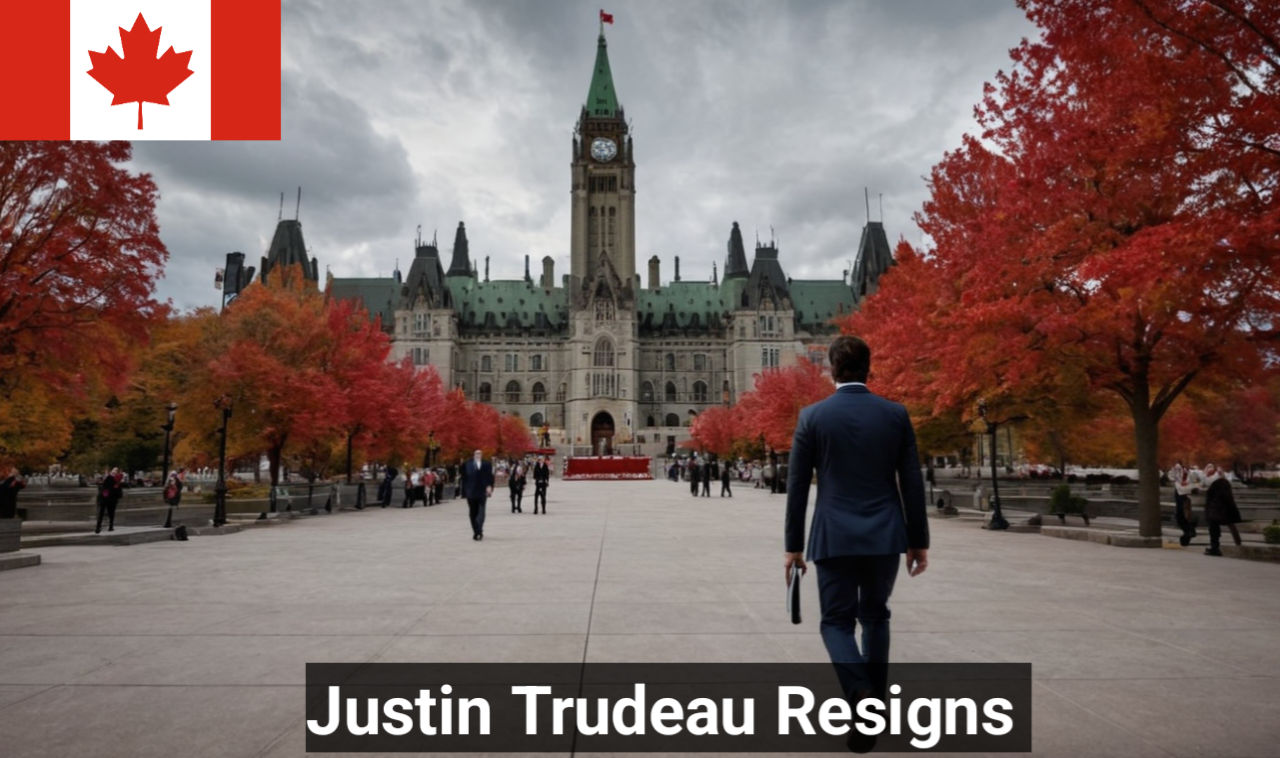Justin Trudeau, the Prime Minister of Canada, has announced his resignation. This decision, made public on January 6, 2025, marks the end of nearly a decade-long tenure. Trudeau has been a significant figure in Canadian politics, and his resignation has sparked widespread discussion about its causes and potential impacts.
Reasons for Justin Trudeau’s Resignation
1. Declining Popularity
Justin Trudeau’s popularity had been on a steady decline in recent years. Public trust in his leadership eroded due to controversies and dissatisfaction with his policies. Issues like his handling of the economy, foreign affairs, and domestic challenges alienated many supporters. Scandals, such as his involvement in the SNC-Lavalin affair and blackface incidents, further damaged his reputation.
2. Internal Party Disputes
Trudeau faced mounting pressure from within his own Liberal Party. Disagreements over leadership style and key policy decisions created divisions among party members. Several prominent leaders within the party questioned his ability to lead effectively, especially as his government struggled to deliver on some of its promises.
3. Economic Concerns
Canada’s economy has faced challenges during Trudeau’s tenure, including housing affordability, inflation, and unemployment issues. Many Canadians expressed frustration over the government’s inability to tackle these problems effectively. Critics argued that Trudeau’s policies were not addressing the concerns of the middle class, further contributing to his declining support.
4. Desire for Change
In his resignation speech, Trudeau emphasized that every leader must know when it is time to step aside. He expressed his belief that new leadership would bring fresh perspectives and energy to tackle Canada’s challenges.
Effects of Justin Trudeau’s Resignation
1. Political Uncertainty
Trudeau’s resignation has left a leadership vacuum in the Liberal Party. The process of electing a new leader is expected to take several months, creating a period of political uncertainty. This could impact the government’s ability to implement policies effectively during the transition.
2. Potential Policy Shifts
The resignation may lead to significant changes in the Liberal Party’s direction. A new leader could prioritize different policies or adopt a contrasting approach to governance. This shift could affect Canada’s domestic and international policies, including climate change initiatives, healthcare reforms, and foreign relations.
3. Impact on Upcoming Elections
Opposition parties, particularly the Conservatives, have called for early elections following Trudeau’s resignation. The leadership change in the Liberal Party could influence the party’s performance in future elections, either revitalizing its base or further weakening its position.
4. Economic Implications
Trudeau’s resignation has introduced uncertainty into Canada’s economic landscape. Businesses and investors may adopt a wait-and-see approach until the new leadership is established. This could slow down investments and economic activity in the short term.
Who Will Succeed Trudeau?
The Liberal Party will hold a leadership contest to select Trudeau’s successor. Several prominent names have emerged as potential candidates, including Chrystia Freeland, the Deputy Prime Minister, and François-Philippe Champagne, the Minister of Innovation, Science, and Industry. The new leader will not only inherit Trudeau’s political legacy but also the challenges facing Canada.
Why Did Trudeau Resign Now?
The timing of Trudeau’s resignation has raised questions. Analysts believe that stepping down early allows the Liberal Party sufficient time to prepare for the next federal election. Additionally, Trudeau’s decision to resign before his popularity declines further may help preserve his legacy.
Impact on Canada’s International Relations
Trudeau was known for his progressive stance on global issues, including climate change, human rights, and trade. His resignation may create a temporary gap in Canada’s international leadership. The new leader will need to rebuild alliances and navigate global challenges while maintaining Canada’s position on key issues.
Public Reactions
Supporters
Supporters praised Trudeau for his contributions to Canadian politics, including his focus on diversity, inclusion, and social justice. Many believe he made Canada more progressive and modern during his tenure.
Critics
Critics, however, pointed to his failures in addressing economic challenges and controversies that overshadowed his achievements. For them, his resignation was long overdue.
Next Steps for Canada
1. Leadership Transition
Trudeau will remain in office until the Liberal Party elects a new leader. The leadership race is expected to conclude by March 24, 2025.
2. Opposition Pressure
Opposition parties, led by the Conservatives, are pushing for early elections. They view this as an opportunity to challenge the Liberal Party’s hold on power.
3. Citizen Expectations
Canadians now look to the Liberal Party for stability and strong leadership. The new leader will need to address key issues, including economic recovery, healthcare, and climate change.
Conclusion
Justin Trudeau’s resignation marks the end of an era in Canadian politics. While his tenure was marked by significant achievements, it was also marred by controversies and challenges. His decision to step aside reflects his acknowledgment of the need for change in leadership. As Canada transitions to new leadership, the country faces a period of political and economic uncertainty, but also an opportunity for renewal and progress.
